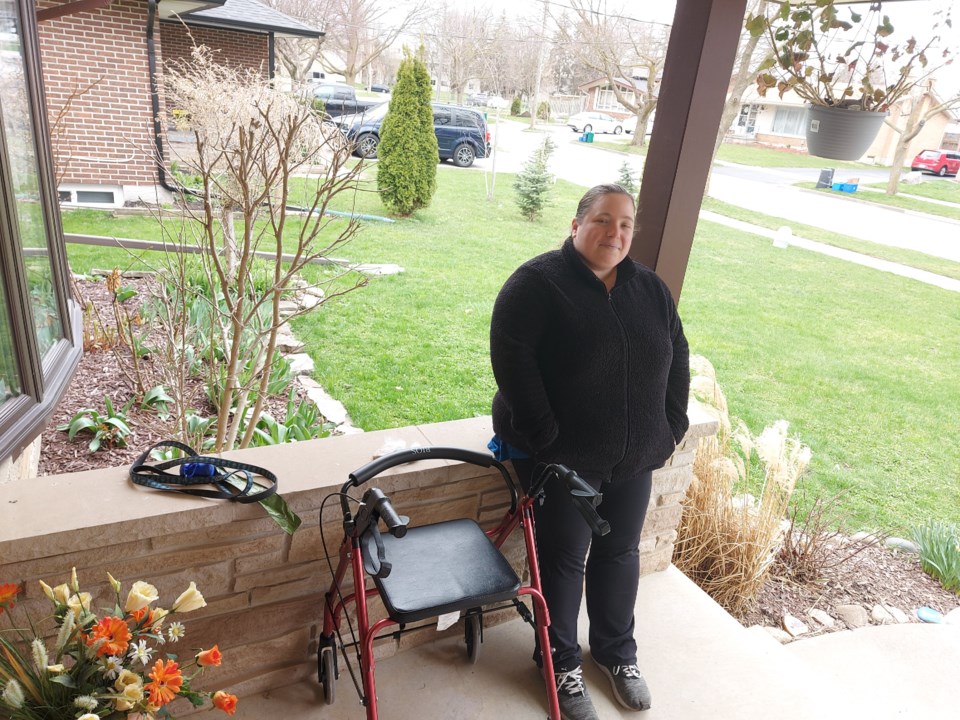Growing up in Cambridge, Linda Montgomery always saw it as the ideal place to raise her family and she's been looking high and low for a place to call home with her husband for over five years.
But to their surprise and dismay, they haven't been able to find any type of housing in the city with suitable accessibility options.
After a disability caused by work injuries left her relying on a cane or walker, she needed a certain level of accessibility at home. Stairs have become an impossible challenge.
Thanks to a friend, they were able to find an apartment that seemed perfect last year in Cambridge but after three months of moving in, the building was sold and they were asked to vacate within 10 months.
Montgomery said the owner wanted to tear it down to build new condominiums.
Searching for housing assistance, Montgomery called over a dozen local agencies such as Lutherwood Housing, which told her to try kijiji’s accessible housing tab.
Habitat for Humanity responded back to her in an email letting her know they don’t have the means to take on new residents right now and that their new build in Cambridge won’t have any accessible options.
“There is just no accessible housing," she says. "I called 12 different housing waiting lists and the average wait time for accessible housing is 6 to 7 years.”t
Having reached a dead end, and running out of time, Montgomery had to move in with her parents in late January.
Shockingly, a few days later her parents' landlord came over to tell them he was planning on selling the house to take advantage of the current market and they had to move, again.
“My search for housing never really ended. And now we had to find my parents a house.”
At the beginning of April, the family was able to sign a one-year lease on a house in Kitchener. To their dismay it costs them close to $3,000 a month.
“We went from paying $950 plus utilities in Cambridge and now we're paying $2,950 plus utilities for this house. The market is just insane,” said Montgomery.
“For $3,000 two years ago we would be living in a mansion. That just isn’t the case right now.”
The place they live in now still has a few stairs making walking the dogs more of a challenge for Montgomery. They plan to put a ramp into the garage, out of their own pocket to help her in the future.
“It’s not completely accessible but we're trying to make it that way.”
She also noted their washing machine and dryer are in the basement, so Montgomery is reliant on her husband who works 12 hour days, to help.
Having contacted hundreds of places in the area to see if they were accessible, Montgomery noted that many places don't seem to understand what accessibility is, as many have stairs leading up to the front door, which “just isn’t accessible for me or seniors or anyone with a disability.”
A release by the Accessibility for Ontarians with Disabilities Act last year noted that 24 per cent of Ontarians have some sort of a disability. That's about 3.44 million people.
Ontario’s building code states that 15 per cent of suites within a multi-unit residential building must have accessibility features including a barrier-free path of travel.
